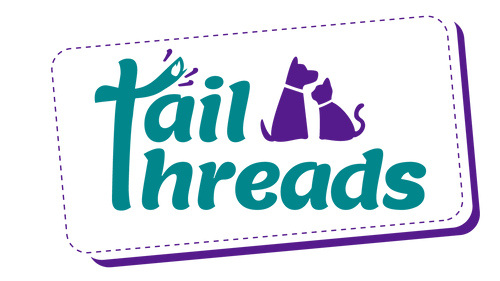The Rhodesian Ridgeback is a large, muscular dog breed that originated in southern Africa. They are known for their distinctive ridge of hair along their back, which grows in the opposite direction to the rest of their coat. This breed was developed as a versatile hunting dog that could track game, protect the homestead, and be a loyal companion. Today, they are popular pets for active families and individuals who appreciate their loyalty, independence, and athleticism.
Rhodesian Ridgebacks Breed Characteristics
- Origin: South Africa
- Size: Large
- Weight: 70-85 pounds for females and 85-100 pounds for males
- Lifespan: 10-12 years
- Breed Group: Hound
- Activity Level: High
- Barking Level: Low
- Attitude to Other Dogs: Can be aggressive towards same-sex dogs
- Attitude to Cats: Can be aggressive towards small animals
- Attitude to Kids: Good with children when socialized properly
The Many Faces of Rhodesian Ridgebacks: An Illustrated Look at Dog Breeds
The Rhodesian Ridgeback is a well-proportioned dog with a strong, muscular build. They have a short, shiny coat that comes in various shades of wheaten, ranging from light to red. Their most distinctive feature is the ridge of hair along their back, which is formed by a growth of hair in the opposite direction to the rest of their coat. They have a broad, flat skull, with deep-set eyes that are usually dark in color. Their ears are set high and hang close to their head. They have a long, powerful tail that tapers to a point, and strong, straight legs.
Understanding The Nature of Rhodesian Ridgebacks
Rhodesian Ridgebacks are known for their loyalty, independence, and courage. They are intelligent dogs that can be stubborn at times, and they require consistent training and socialization from an early age. They are protective of their families and can be aloof with strangers. They are also active and need plenty of exercise and mental stimulation to prevent boredom and destructive behavior.
The Secret Life of Dogs: Exploring Your Rhodesian Ridgeback's Daily Habits
Rhodesian Ridgebacks are active dogs that need plenty of exercise and mental stimulation. They are natural hunters and enjoy activities such as tracking, scent work, and agility. They are also protective of their families and can be wary of strangers. They are not known for excessive barking and are usually quiet and reserved.
Optimizing Rhodesian Ridgeback’s Health Through Training and Nutrition
Rhodesian Ridgebacks are large dogs that require a high-quality diet that is appropriate for their size and activity level. Owners should provide their dogs with a balanced diet that includes plenty of protein and essential nutrients. It is important to avoid overfeeding, as this can lead to obesity and related health problems. Training should start from an early age and be consistent and positive. Positive reinforcement techniques such as praise, treats, and playtime are recommended.
Preventative Measures for Rhodesian Ridgeback Health
Regular healthcare for Rhodesian Ridgebacks includes routine check-ups, vaccinations, and parasite prevention. They should be bathed regularly and their teeth and ears should be cleaned to prevent dental and ear infections. Their nails should be trimmed regularly to prevent overgrowth and discomfort. Some of the most common health problems in Rhodesian Ridgebacks include hip dysplasia, elbow dysplasia, and certain types of cancer. Regular exercise, a healthy diet, and regular veterinary care can help prevent or manage these health problems.
Rhodesian Ridgeback Grooming Information
Rhodesian Ridgebacks have short, dense coats that shed moderately year-round. During the seasonal shedding, they will shed heavily for a few weeks. Regular brushing and occasional bathing are necessary to keep their coat clean and healthy. Their nails need to be trimmed regularly, and their teeth should be brushed to prevent dental issues.
The Advantages of Rhodesian Ridgeback
Rhodesian Ridgebacks are loyal, protective, and good-natured dogs that make great family pets. They are intelligent, easy to train, and have high energy levels, making them ideal for active owners who enjoy outdoor activities. They are also good with children and other pets, making them suitable for multi-pet households.
The Disadvantages of Rhodesian Ridgeback
Rhodesian Ridgebacks can be stubborn and independent, requiring firm and consistent training. They have high energy levels, which may make them unsuitable for owners who cannot commit to daily exercise. They also have a high prey drive, which may make them difficult to train around small animals, and they may not get along with other dogs of the same sex.
Facts You Didn’t Know About Rhodesian Ridgeback
The Rhodesian Ridgeback was originally bred in South Africa to hunt lions. They were used to track and hold lions at bay until the hunters arrived. They are named after the ridge of hair on their back that grows in the opposite direction to their coat. They are also known as "African Lion Hounds."
Rhodesian Ridgebacks are loyal and protective dogs that make great family pets. They require regular grooming to keep their coat healthy and shed moderately year-round. They are intelligent and easy to train, making them ideal for active owners who enjoy outdoor activities. They have high energy levels and may not be suitable for owners who cannot commit to daily exercise. Despite their high prey drive, they are good with children and other pets, making them a popular choice for multi-pet households. People may consider getting a Rhodesian Ridgeback as a pet if they are looking for a loyal, protective, and good-natured dog that is easy to train and has high energy levels. They are also suitable for multi-pet households and enjoy outdoor activities, making them ideal for active owners.

